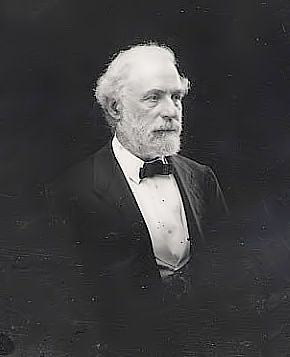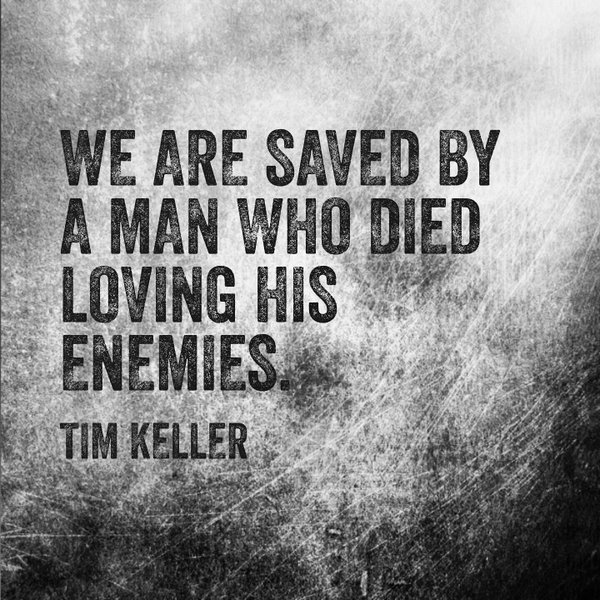Christian Ethic #2 for this conversation:
So, what about in 2017? Should we be removing monuments to Confederate Leaders?
Well, there certainly is wisdom in doing so… and then a Christian ethic for doing so.
First, the wisdom – and from what you might consider an unlikely source:
Lexington, VA., August 5, 1869.
Dear Sir–Absence from Lexington has prevented my receiving until to-day your letter of the 26th ult., inclosing an invitation from the Gettysburg Battle-field Memorial Association, to attend a meeting of the officers engaged in that battle at Gettysburg, for the purpose of marking upon the ground by enduring memorials of granite the positions and movements of the armies on the field. My engagements will not permit me to be present. I believe if there, I could not add anything material to the information existing on the subject. I think it wiser, moreover, not to keep open the sores of war but to follow the examples of those nations who endeavored to obliterate the marks of civil strife, to commit to oblivion the feelings engendered.
Very respectfully, Your obedient servant,
 R. E. Lee.
R. E. Lee.
Obviously, I cannot know the heart of the long-dead General. Why did he prefer that there not be monuments for the American Civil War?
Was he ashamed of defeat? Did he somewhat regret his role in the Civil War (as I was raised to believe)? I don’t know. However, his advice, at least in this case, was to “commit to oblivion the feelings engendered”.
Whose feelings was he concerned about? I am not sure, but I think everyone’s. Who is hurting? Who is wounded?
“Let us remove the unnecessary reminders of those wounds.” Maybe he had really come to the conclusion that it wasn’t worth the pain it caused anyone anymore.
This concern for the feelings of others brings about the second Christian Ethic, also found in Paul’s letter to the Philippians:
Do nothing from selfish ambition or conceit, but in humility count others more significant than yourselves. 4 Let each of you look not only to his own interests, but also to the interests of others. 5 Have this mind among yourselves, which is yours in Christ Jesus, 6 who, though he was in the form of God, did not count equality with God a thing to be grasped, 7 but emptied himself, by taking the form of a servant, being born in the likeness of men. 8 And being found in human form, he humbled himself by becoming obedient to the point of death, even death on a cross. (2:3-8)
Paul tells us that looking after others as though they were more significant than us, is the very mind of Christ, and thus should be followed. Paul fleshes this out in Romans 14 further. If what I am doing, even if my motivation for doing it isn’t wrong, unnecessarily offends a sincere brother or sister in Christ, it should be a relatively easy call for someone who has already committed to death for the sake of Christ!
“For none of us lives to himself, and none of us dies to himself. 8 For if we live, we live to the Lord, and if we die, we die to the Lord. So then, whether we live or whether we die, we are the Lord’s.” (Romans 14:7-8)
If I am committed to dying to myself, then if a sincere brother asks me to stand alongside of him while we remove a monument to a part of history that he is asked to honor (by sending his children to a school named after someone who fought to defend a state’s rights to own people, for example), then even if I like that monument, it should be an easy call!
And, honestly, it is for me.
There is an African American pastor here in Tyler who is also a school principal. I have sat under his teaching numerous times. He is an excellent Bible teacher. I don’t know him as well as I should, but I certainly think of him as a friend, brother-in-Christ and a fellow worker and warrior. If Steven asked me (and he hasn’t, yet) to stand with him in an effort to change the name of a school in our district or to remove a statue that his congregation found offensive, I would happily do so.
He has faced racism in ways that caused me to shake with anger.
God knows that I would love to confront a group of White Supremacists about my reasons… especially one that claims to be a Christian organization (like the pathetic modern KKK apparently does). Please let me debate one of them on a stage. (If any of you are reading this, please learn some Hermeneutical techniques!)
But what if a Civil War re-enactment group wanted to use our facilities to practice? Should I refuse them – or at least those dressed in Confederate garb? What if I know them personally and I know they are not racists? I am sure someone would be offended by a yes or no answer. Maybe part of the Christian ethic would be to ask a wise, sincere member Christ-following representative of that group who might be unnecessarily offended and get their wisdom, too.
This stuff gets hard quickly. At least we have the Christian ethic of loving one another, dying to self, and looking first after the interest of others. It doesn’t make things less complicated, but it does mean there is a way to engage with these questions with grace and strength.
So, if this is the ethic, then it should be easy to make this call, right? I stand with all African American brothers and sisters and who want the statues down, right? Well, yes. However, how do I do it with the same consideration of the brothers and sisters who see these monuments as important to them?
As much as it is the American way to allow people to speak freely, even if the speaker is an ignorant hate monger. There is no freedom of speech if only inoffensive speech is protected.
Much moreso, it is the Christian ethic that if we only love lovable  people, there is nothing special about following Jesus with His radical ethic of loving the “unlovable”.
people, there is nothing special about following Jesus with His radical ethic of loving the “unlovable”.
“If you love those who love you, what benefit is that to you? For even sinners love those who love them. 33 And if you do good to those who do good to you, what benefit is that to you? For even sinners do the same?” Luke 6:32-33
For more on this ethic, see also: Matt 5:43-48 Luke 6:27-32, Romans 5:8, I John 4:19.
There is another part of this mental exercise that I promised to comment on before I was done. This is primarily what makes it so hard to jump in on either side. People who I know well enough to discern that their motivation for being vocal about this immediate issue is toxic. They are motivated by a disease that is perhaps the main pollutant of current American culture. I referenced it in my opening remarks many pieces of this article ago when I referenced that it must be Screwtape’s dream come true (a reference to CS Lewis’ brilliant and somewhat terrifying (at the deep level, not the jump scare level) book “Screwtape Letters”.
Some of you might have noticed that earlier, I used the phrase “a sincere brother or sister in Christ.” I wonder if that raised any eyebrows.
I don’t just mean someone who sincerely feels something. By definition, “sincerity” (as well as “authenticity” “genuine-ness” etc.) means “the same over time or under pressure”, right?
Well, then, feelings, though perhaps honestly what someone feels at the moment, cannot really be thought of as sincere, since they are so vulnerable to change.
(As I have considered making a more vocal statement about supporting and even agreeing with the decision to move Confederate monuments, etc. into private collections or even museums – maybe even a whole new type of “monument museums” that could engage in the complexity of the conversation – I continue to see people, often the front people, engaged and I know them well enough to know that I don’t want to be lumped in with them. Let them become part of history rather than to have places of honor.
To ask someone to remember something is appropriate for many different reasons, some of which have be enunciated here. To remember is wise (ask about Holocaust museums, for example). To ask someone to honor someone who they believe was wrong is very different thing and is often wrong.)
But when it comes to drawing attention to my own opinions, especially without explaining them, I don’t want people to assume the same motives on me that they are probably rightly assuming on these other people. This brings me to my last rant in this rant-heavy article:
The Crisis Culture and our response
Pingback: Confederate Monument Controversy – Part 3 | Chris Legg, LPC
Thank you for writing this series, Chris. Very wise and helpful.
Thanks for your kind words!